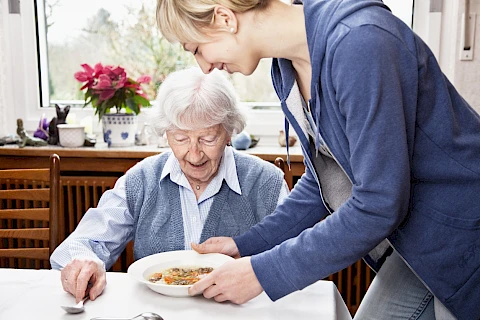
Parkinson's disease (PD), a chronic, progressive movement disorder, significantly impacts those diagnosed and their family members. A well-balanced Parkinson's disease diet can help manage symptoms and enhance medication effectiveness and overall wellness.
The Impact of a Good Parkinson's Disease Diet
A healthy eating plan is pivotal to controlling the symptoms of Idiopathic Parkinsonism. Nutritional choices can significantly impact medication efficacy and overall well-being. A diet rich in antioxidants, fiber, lean proteins, and other nutritionally essential components can alleviate some of PD's challenges.
Essential Nutrients for People With PD
People with Lewy body disease require specific nutrients to support their overall well-being. Incorporating these ingredients into daily meals can be a simple yet effective strategy for augmenting symptom management.
- Omega-3 fatty acids, found in fish and flaxseeds, improve neurological function.
- Antioxidants combat cellular damage in berries, leafy greens, nuts and seeds, and colorful vegetables.
- Dietary fiber from whole grains, legumes, and fruits can support digestive wellness and manage constipation.
- Vitamin D, either from sunlight exposure or fortified foods, is indispensable for strong bones.
Meal Planning for Shaking Palsy
Nutritional management can be a lifeline in managing a balanced food intake for a person with Parkinson's. This process involves considering the person's needs, preferences, and meal schedule. For example, medication schedules might interfere with eating plans. One can incorporate small, frequent feedings into the day to overcome this. By taking the time to plan, caregivers can ensure a variety of ingredients are incorporated into each dish.
Easy-To-Swallow Food Options
Difficulty swallowing is a common issue for those struggling with Parkinson's. Luckily, there are many easy-to-swallow, nutritious options available. Healthy options such as pureed fruits and vegetables, smooth soups, and finely chopped lean meats can be beneficial. Preparing these with a soft texture makes them more palatable and quicker to ingest. Additionally, preparing dishes at a moderate temperature and taking ample time to eat can make mealtime less challenging.
Hydration Is Vital
Staying well-hydrated is essential, particularly for Parkinsonian syndrome, where dehydration may exacerbate symptoms. Individuals should consume ample fluid throughout the day, whether in the form of water, herbal tea, or hydrating fruits and vegetables. Certain beverages, like those high in caffeine, should be limited as they may interfere with medication absorption.
Get Care From Senior Helpers Reno
Caregivers must take these guidelines for Parkinson's disease diet seriously and promote a positive environment. We at Senior Helpers Reno know the complexity of caring for someone with this condition. Our signature Parkinson's care services, including dietary choices, are designed to guide you throughout this journey. Get in touch with us today to learn how we can help Reno and Sparks residents improve their health and quality of life.